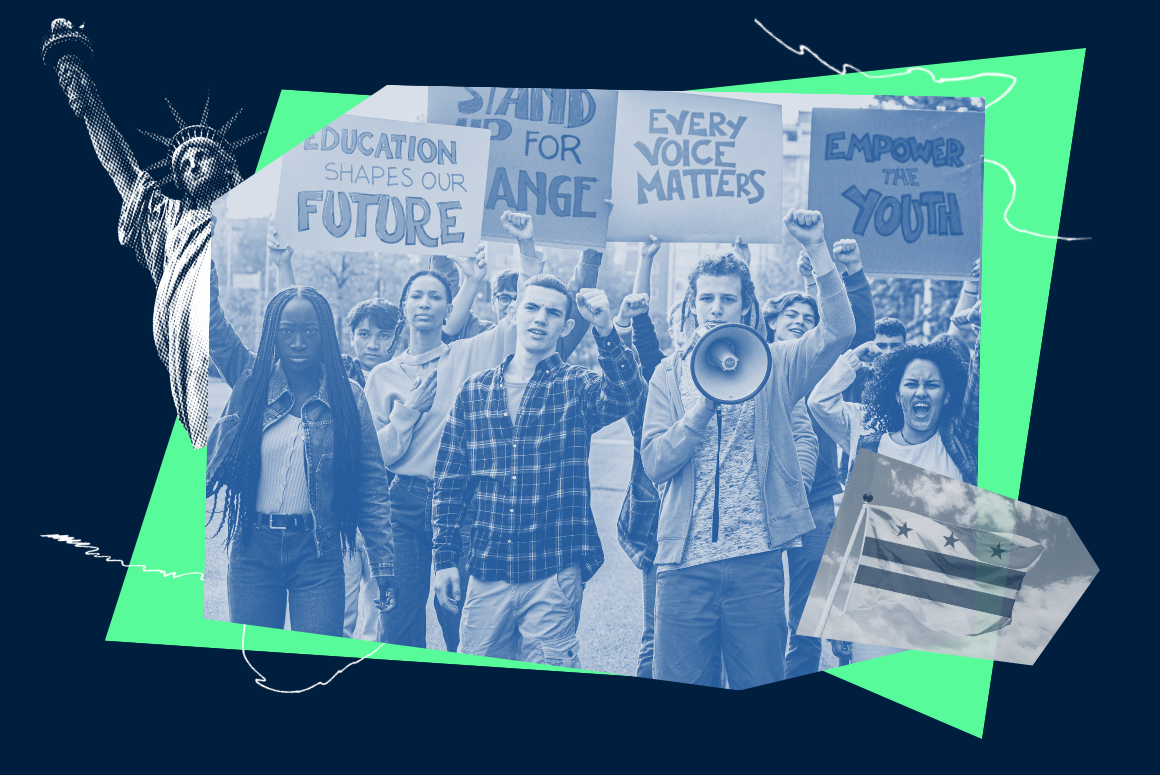Know Your Rights At School In D.C.

Every student in the United States has constitutional and other fundamental rights. You don’t lose your rights just because you enter a school!
Some rights, however, are limited in school settings. Others are specific to some types of schools.
It is important to understand your rights and to know how to defend them. The ACLU-D.C. is committed to protecting students’ rights. We support students, educators, school staff, parents, and other people who support students in the District!
Here is a list of resources to help equip our community with what you need to understand to protect students’ rights in the District of Columbia.
This guide focuses on students’ rights under the First Amendment of the United States Constitution—things like speech and expression, student journalism, and the right to assemble. The guide also provides specific information for immigrant and LGBTQ+ students.
In D.C., for example, the D.C. Human Rights Act protects people from discrimination. This is one of the strongest local civil rights laws in the country. It applies to everyone—whether you live here or go to school here.
For students and their families, the D.C. Human Rights Act offers protection against discrimination based on 23 distinct traits including:
- Race or ethnicity
- Sex or gender, including being transgender, non-binary, or intersex
- National origin, including ancestry
- Religion, disability, sexual orientation, and many more protected traits
Talking About Your Rights
As long as you are not encouraging or helping someone break the law, telling other people about your rights or their rights is your right. You can:
Share truthful, legally obtained information—including about law enforcement
Talk to others about their legal rights even if they are in trouble
Speak out and push for new laws or changes—without fear
